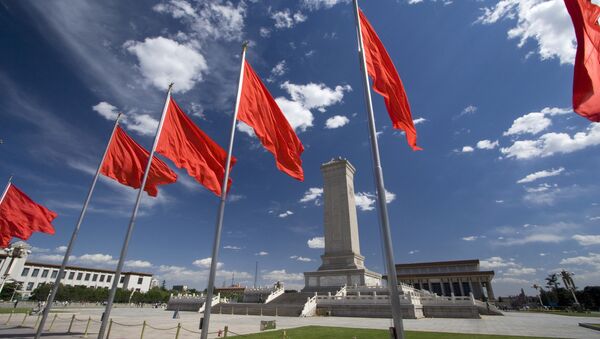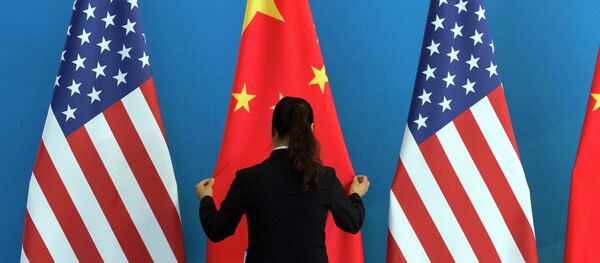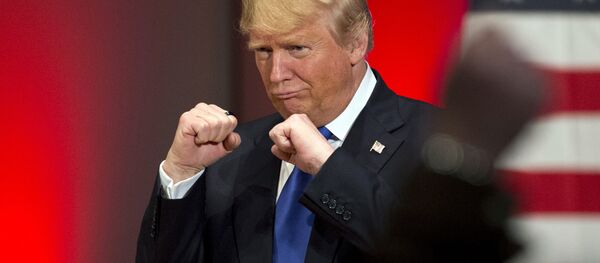China could take advantage of Donald Trump's victory in the US presidential election, Wang Xiangwei, the former editor-in-chief of the South China Morning Post, suggests in his recent article.
"As expected, Chinese leaders largely remained reticent on the American election — until Wednesday when President Xi Jinping congratulated Trump in a telegram, saying he hoped to work with him to develop bilateral ties from a new starting point," Wang points out.
Commenting on the matter, Chinese online newspaper The Global Times recalled that "Trump campaigned heavily for a focused return to US economic interests, something that might turn Sino-US relations from a geopolitical rivalry to an economic conflict."
Wang explains that long before the election Chinese officials had reconciled themselves to the fact that no matter who the winner was, the new US leadership "would most likely get tougher on China politically and economically."
Still, it was obvious that Hillary Clinton would have most likely continued to push ahead with Obama's ‘pivot to Asia' policy.
For his part, Donald Trump has repeatedly threatened to impose extra tariffs on imported Chinese goods and accused Beijing of "stealing" American jobs. The Chinese fear that he may get tougher on China regarding trade and the yuan, Wang notes.
"But such pressure may be a blessing in disguise for China," he highlights.
Remarkably, the Obama Administration has already lost hope to pass the controversial trade pact.
"A sweeping Pacific trade pact meant to bind the US and Asia effectively died Friday," as William Mauldin of the Wall Street Journal noted Friday.
Wang believes that Washington's relations with its longstanding Asia-Pacific allies, such as Japan and South Korea, will also undergo some changes.
"The US-led ring to circle China is likely to lose its steam, thus reducing geopolitical pressure on China," he emphasizes.
Indeed, in an interview with Sputnik Dr. Seijiro Takeshita of the University of Shizuoka, Japan, expressed his deep concerns about the possibility that Trump will abolish TPP and put additional burden on the US' military allies in the Asia-Pacific region.
"If he abolishes TPP [Trans-Pacific Partnership], as he has promised it would in the long term jeopardize the US position. Certainly it would have also meant a rise in the relative strength of countries like China," Takeshita believes.
"With the sure collapse of TPP, China can take advantage of the opportunity to accelerate its own efforts to pursue regional and bilateral free trade agreements in Asia and beyond," he elaborates.
It seems, however, that Beijing's concerns could have been groundless.
James Woolsey, a senior adviser to Donald Trump told the South China Morning Post that he expected a "much warmer" response from the Trump administration to both China's One Belt, One Road initiative and the Beijing-led Asian Infrastructure Investment Bank (AIIB) project.
Commenting on the issue Nikita Maslennikov, an expert at the Russian Institute for Modern Development, noted that Trump's team has obviously hinted at the possibility of a win-win solution for current US-China tensions.
"Of course, Beijing is concerned. I guess Trump's team wanted to send a signal to China that his electoral promises were rhetoric and the actual situation will be different. Possibly, Trump's strategy towards China will be adjusted. The statement by his adviser is a signal of such an intention," Maslennikov told Sputnik China.




